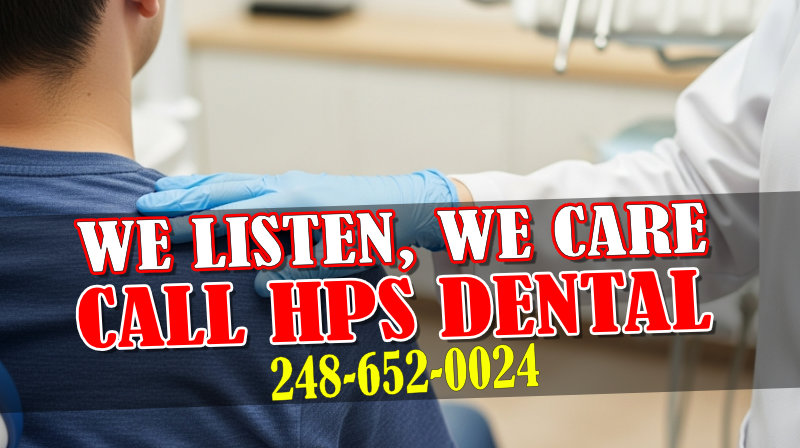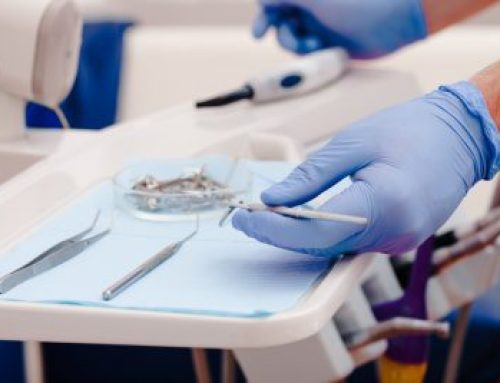Tooth decay, also known as dental caries, is a silent epidemic affecting millions of people globally, making it one of the most widespread chronic illnesses globally. Though widespread, this condition is often underestimated until its symptoms–pain, sensitivity, or visible damage–become apparent and impossible to ignore. Many mistakenly view cavities as simply being an inconvenience; however, they represent the final stage in an intricate and progressive process that could potentially have serious repercussions for overall health beyond just your mouth. This comprehensive guide seeks to shed light on this pervasive oral health issue by providing you with the knowledge and tools needed to preserve both your smile and overall wellness.
What Is Tooth Decay and Its Effects?
At its core, tooth decay is a process that erodes away at your tooth’s hard structure, starting with oral bacteria interacting with food you eat and your tooth enamel. The surfaces of our teeth are always coated by a thin and sticky film known as plaque, which contains bacteria from food particles as well as saliva produced from swallowed bacteria – some species such as Streptococcus mutans and Lactobacillus being responsible for decay.
When you eat sugary or starchy foods and beverages, these bacteria consume the carbohydrates and sugars found within. As part of their metabolism process, they produce acids as waste products – these acids then accumulate in plaque biofilm and lower pH levels in your mouth, creating an acidic environment and hostile surroundings for your teeth. As acid attacks begin eroding tooth enamel (one of the hardest substances in our bodies), they do so through demineralization processes in which acid dissolves calcium and phosphate deposits contained within enamel structures, weakening their strength over time.
Initial demineralization may be reversed through saliva’s mineral-rich composition; your saliva’s minerals can help repair and remineralize enamel. But when these acid attacks become frequent and protracted – such as from frequent snacking or sipping sugary drinks throughout the day – their natural repair mechanisms become overwhelmed, weakening enamel further while producing white spots which could signal early decay. Over time, demineralization progresses until a small cavity forms in the enamel surface, opening the door for bacteria and acids to access dentin beneath – further speeding up decay processes. Decay in dentin generally progresses rapidly and may lead to extreme temperatures being detected as hot or cold temperatures change, often with accompanying sensitivity. If this decay continues, burrowing deeper, it will eventually reach the pulp chamber containing nerves and blood vessels of your tooth; reaching this stage is often marked by intense and persistent pain as well as possible infection or abscess formation, necessitating immediate professional intervention.
Root Causes of Tooth Decay
Tooth decay isn’t caused by any single factor; instead, it involves multiple complex interactions that must all come together in order for effective prevention to occur. Gaining a comprehensive understanding of these causes is essential in order to prevent decay successfully.
Diet: An Essential Component in Cavity Formation: Sugary foods and carbohydrates have long been known to play an integral part in dental cavity formation, with bacteria feeding off of them and turning even temporary snacks into prolonged acid attacks on teeth. Frequent consumption may even prove more damaging, since sipping soda over an hour after drinking a sugary drink quickly keeps your mouth in an acidic environment and inhibits saliva from neutralizing acidity and providing for remineralization processes. Furthermore, highly acidic beverages like citrus fruits, sodas, and sports drinks directly erode enamel, further weakening teeth and increasing susceptibility to decay.
Oral Hygiene and Oral Bacteria: For effective decay prevention, oral hygiene must be the cornerstone. Plaque biofilm provides a safe haven for bacteria responsible for decay. Without consistent brushing and flossing routines to remove this hardened plaque layer called tartar/calculus, it hardens into tartar/calculus that must be extracted by dental professionals only. Leaving bacteria to multiply produces acid attacks on teeth over time, which weakens them gradually, causing decay to set in. Proper technique, such as brushing for at least two minutes twice daily, combined with regular flossing sessions, is the best way to physically eliminate harmful biofilm and thus avoid future decay outbreaks!
Avoid Unknown or Overlooked Risk Factors
Beyond diet and hygiene practices, other factors can significantly increase your risk of tooth decay, including dry mouth, also known by its scientific name of xerostomia. Saliva serves as our mouth’s natural defense system; it washes away food particles, contains minerals that help remineralize enamel, and neutralizes acids. If saliva production decreases significantly, then this natural defense becomes compromised, leaving teeth highly exposed. Dry mouth can be caused by various factors, including certain medications (antihistamines and decongestants), medical conditions such as Sjogren’s Syndrome or diabetes, and cancer treatments. Genetic factors may also play a part, impacting the hardness and composition of saliva as well as susceptibility to bacteria-caused decay. Lifestyle choices like smoking contribute to an increased risk of decay and gum disease.
Consequences of Tooth Decay
Left untreated, tooth decay can have far-reaching repercussions that go beyond simply leaving a hole in a tooth. Its physical impacts are equally severe: constant pain and sensitivity can disrupt sleep, work, and focus; as decay spreads to the pulp it may result in abscesses formed from bacteria-caused pocket of pus that leads to severe swelling in face/jaw area, fever spikes and severe throbbing sensation; potentially spreading throughout body in rare instances becoming life threatening; while ultimate tooth loss impedes ability to eat/speak/smile with confidence!
Oral health has an indisputable correlation with overall systemic wellbeing, and research has identified links between poor oral hygiene and conditions such as heart disease, stroke, diabetes, and pregnancy complications. Tooth decay and gum disease-causing bacteria can enter the bloodstream via oral hygiene practices and travel throughout the body, contributing to inflammation and other health issues. Addressing tooth decay is not only about keeping a beautiful smile intact; it is about protecting all aspects of health. Furthermore, psychological effects should also not be overlooked: your smile is an integral component of self-expression and confidence; pain, discomfort or visible decay may lead to embarrassment or withdrawal from social activities, severely diminishing one’s quality of life and self-esteem.
HPS Dental Takes an Active Approach to Prevention and Treatment at our Practice
At HPS Dental, our philosophy revolves around being proactive and patient-centric. We strongly believe that prevention is always preferable to treatment; together with you and our team of dental experts, we can form a lasting partnership to safeguard your oral health for life.
At-Home Care: Routine care at home is key. To maximize effectiveness, we recommend using a soft-bristle toothbrush with fluoride toothpaste and brushing twice daily for two minutes. Additionally, flossing daily is crucial, as it’s the only effective way to reach between teeth where decay often begins. Using an antimicrobial mouthwash rinse may further decrease bacterial loads in the mouth.
Dietary Habits that Support Success: Making conscious decisions about what and how you eat can have a dramatic effect. Limit sugary and acidic food and drinks when possible; when consumed, consume them quickly instead of sipping slowly over a longer period. After eating or drinking something acidic, rinse your mouth with water to neutralize its pH. Selecting tooth-friendly snacks like cheese, nuts, fibrous vegetables, and chewing sugar-free gum after meals can stimulate saliva production, which assists with cleansing and remineralization processes.
Professional Care at HPS Dental
Your at-home routine is only one aspect of good oral health; regular dental check-ups are essential to identifying problems early. At your visit, our experienced team will perform professional cleaning to remove plaque and hardened tartar that you are unable to reach on your own, conduct a comprehensive exam using state-of-the-art diagnostic tools such as digital X-rays to detect early signs of decay as well as provide preventive treatments such as dental sealants – thin coatings applied over chewing surfaces of molars – to seal out bacteria and food particles in hard-to-reach areas of molars – while performing thorough examination using state-of-the-art diagnostic tools such as digital X-rays so as not miss anything at home.
HPS Dental’s Comprehensive Treatment Solutions
If tooth decay is diagnosed, our team at HPS Dental offers comprehensive treatments designed to restore your smile, ease any associated discomfort, and stop further damage. Fillings may be used to repair a cavity before its progression; for more extensive damage a crown may be needed for restoration of structure, strength and appearance of damaged teeth; root canal therapy is another great way we use to save teeth while eliminating infection and pain if they reach pulp; when this fails we offer restorative options like dental implants and bridges so we can restore function and aesthetics of a smile when necessary.
Your Journey Toward a Healthier Smile. Tooth decay may be an invisible plague, but with knowledge and an intelligent plan in place, it is entirely preventable. By working with our knowledgeable team at HPS Dental, you are taking an invaluable step toward protecting both your oral and overall well-being – we promise personalized and compassionate care while giving you all of the tools to maintain an appealing, healthy smile for a lifetime!
Do not wait until pain or damage becomes a reality to take charge of your oral health! Reach out to HPS Dental at (248) 652-0024 now to arrange for your comprehensive dental exam and embark on the path toward happier days filled with less worry and more smiles!




